CSU philosophy students and faculty are taking advantage of global travel to expand and deepen their intellectual interests. In Fall 2018, two students and two faculty spent the semester abroad and came away with a profound appreciation of their new cultural and academic experiences.
Reilly Terranova traveled to Osaka, Japan for his junior year experience abroad and studied at Kansai Gaidai University. Studying in Japan just “felt right” for Reilly as it aligned with his academic interests, his spiritual interests in Buddhism, and his love of anime. At the university, Reilly studied Zen Buddhism, Japanese history and language, and aesthetics.
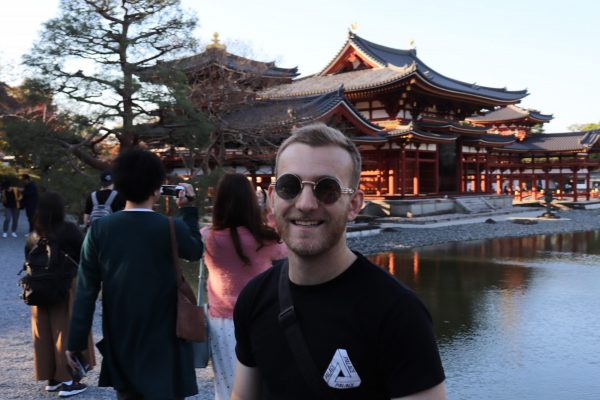
Academically, Reilly continued work on a paper in Zen Buddhist philosophy and the meditative teachings espoused by Dogen, a Japanese philosopher from the 13th century, that he began in his CSU East Asian philosophy course. In Japan, Reilly delved more into Dogen’s teaching of zazen, or meditative practice, and constructed an experiential account of the meditative experience.
Beyond the classroom, Reilly found the most benefit from throwing himself into this “cool, cultural experience.” He explains, “I had to prove to myself that I could step out of my comfort zone and go to the other side of the world without knowing anyone.” Reilly, who describes himself as somewhat introverted, was surprised by how quickly he adjusted to the new experience and found friends easily. “I grew so much as a person. It was the best thing I’ve ever done.”
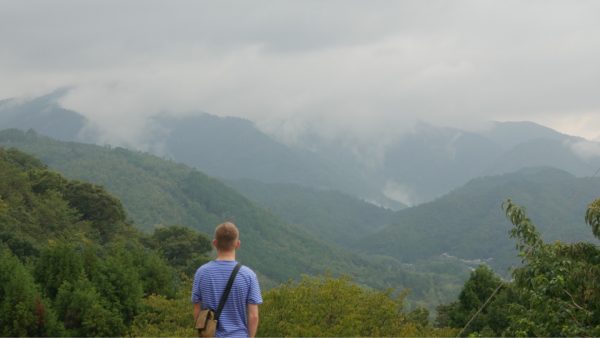
Spencer Sheaman also went abroad for his junior year. Spencer, a philosophy major, has a long list of minors—in international development, anthropology, and global and environmental sustainability—that demonstrates his eagerness to learn about the world and make connections. He chose the island of Bali in Indonesia for his education abroad due to his interest in religion and his curiosity about southeast Asia. Bali is home to primarily Hindus, with significant Muslim, Sikh, Catholic, and syncretic religious communities—making it an ideal place to study religion.
Spencer’s program, “Arts, Religion, and Social Change,” was offered by the School of International Training and focused on how the development of religious practice impacts social change. Spencer was especially interested in how religion impacts environmental and sustainable practices and how religious rituals are adapted to modern day society. For his own project, he looked at the evolution of Theravada Buddhism in Bali since its arrival in the first century.
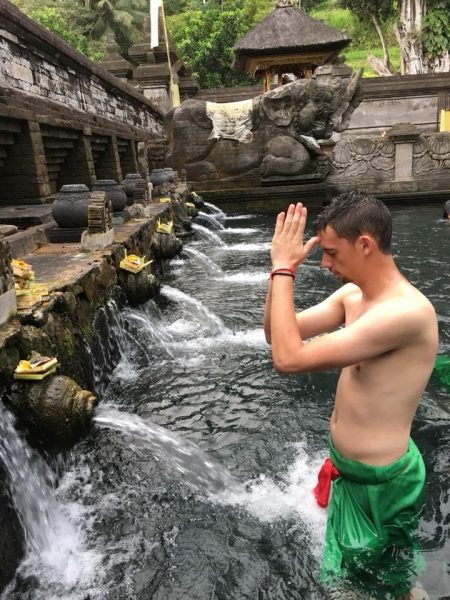
Spencer was struck by how passionate many local Balinese people were about religion, particularly the idea of salvation and the escape from human suffering—central ideas in both Hindu and Buddhist faiths. Spencer explains, “Many wanted to discuss the nature of suffering and the urgency of salvation, of nirvana. The people were very passionate about this as well as the importance of meditation in our lives. It was a conversation I had with everyone.”
Spencer appreciates how his studies at CSU helped him analyze South Asian thought on a conceptual level and how his time in Indonesia helped him understand the philosophy on a more experiential level. Spencer found that this new cultural experience deepened his understanding of philosophy. “I learned a lot about how philosophy is rooted in a place and how it is framed by that particular history.” Spencer says he “absolutely recommends” education abroad for philosophy majors, especially those studying global philosophies and religions.
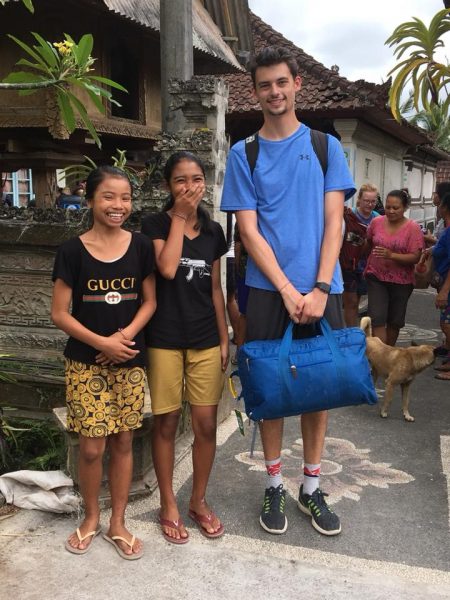
Philosophy faculty Matt MacKenzie and Ashby Butnor also spent the Fall 2018 semester abroad—visiting not one, but eleven different countries in Europe, Africa, and Asia. They set sail, along with their two children, with Semester at Sea to teach philosophy aboard the MV World Odyssey.
Matt taught two of his regular courses, world philosophies and Buddhist philosophy, and designed a new course on contemplative studies, including practices of meditation, tai chi, and yoga, especially for this voyage. In addition to reflection assignments at each port of call, each course has an accompanying field class where students deepen their understanding of the course material. Matt’s favorite field class was in India where students were able to practice with a master yogi. “My students and I were able to experience first-hand how ancient yoga practices, Ayurvedic medicine, and organic agriculture are blending in modern India. We were also able to connect classical Yoga philosophy with modern postural yoga.”
On the voyage, Ashby taught a course on the ethics of global poverty which examined our moral obligations to “distant others” who are suffering from material deprivation. She has taught the course a number of times in Colorado, but the course had a special impact when traveling. “Nothing compares to the firsthand, visceral experience of travel when teaching a course like this. Extreme poverty was no longer a conceptual idea, but something we could observe and try to understand at almost all our ports.” Ashby’s students participated in a day of service in Cape Town working with Operation Hunger, a non-profit seeking to bolster community projects aimed at hunger and poverty relief. Her students volunteered with preschool students in a squatter camp and served food in a soup kitchen in one of the townships. Ashby was also able to lead students in service projects in Ghana and India.
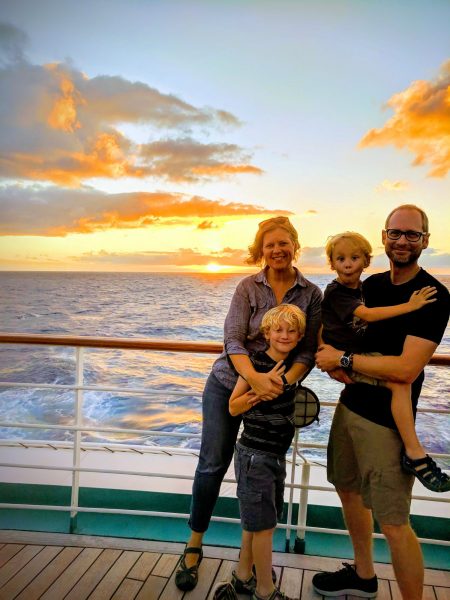
Ashby and Matt agree that traveling and teaching abroad is a life-changing experience. Despite the short visits in each country, about 6 days each, the trip has fueled their desire for more travel, more adventures, and more high-impact teaching-and-learning experiences. Matt explains, “I was amazed with how much we could see and do in each port.” For now, they are working to incorporate their global experiences into their CSU courses, including World Philosophies and The Ethics of Global Poverty, a Key Service seminar, this fall.
Philosophy faculty, Ken Shockley, and his family will set sail on the Fall 2019 voyage of Semester at Sea in September. Their voyage will travel through Europe and West Africa and cross the Atlantic to South and Central America, including transits though the Kiel and Panama Canals. Ken is looking forward to the voyage. “SAS provides a unique and exciting opportunity to view the world in many different perspectives. I can’t think of a better way to explore philosophy than by exploring the world. I hope my students are as thrilled as I am.”